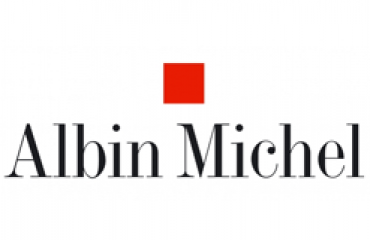This post is also available in:
![]() English (الإنجليزية)
English (الإنجليزية)
| Name of Publishing House | American Library Association |
|---|---|
| website | http://www.ala.org/ |
| Communication | pgraller@ala.org |
About ALA

The American Library Association (ALA) is the oldest and largest library association in the world.
Founded on October 6, 1876 during the Centennial Exposition in Philadelphia, the mission of ALA is “to provide leadership for the development, promotion and improvement of library and information services and the profession of librarianship in order to enhance learning and ensure access to information for all.”
ALA’s Core values, key action areas and strategic directions
On June 28, 2015, the ALA Council adopted a new Strategic Plan (2017 Update) and the Association’s new strategic directions for the next three to five years. Building on the Council-adopted Key Action Areas, three strategic initiatives have been identified as priority areas of focus for the Association. At the 2017 Midwinter Meeting, ALA Council approved a fourth direction on Equity, Diversity, and Inclusion. The four strategic directions are:
- Advocacy
- Information Policy
- Professional & Leadership Development.
- Equity, Diversity & Inclusion
In pursuing our mission, the Association’s core value statements define our deepest aspirations and how we approach our work together. They are:
- Extending and expanding library services in America and around the world
- All types of libraries – academic, public, school and special
- All librarians, library staff, trustees and other individuals and groups working to improve library services
- Member service
- An open, inclusive, and collaborative environment
- Ethics, professionalism and integrity
- Excellence and innovation
- Intellectual freedom
- Social responsibility and the public good
Eight Key Action Areas, refined over time by the ALA Council as the Association’s annual programmatic priorities, have defined the broad scope of our work and where we seek to have significant impact:
- Advocacy for Libraries and the Profession
- Diversity
- Education and Lifelong Learning
- Equitable Access to Information and Library Services
- Intellectual Freedom
- Literacy
- Organizational Excellence
- Transforming Libraries
Within this broad framework, the new strategic directions have been identified as areas of intense focus for the next three to five years. For each of these strategic directions, there are goals that articulate the outcomes we would like to achieve and answer the question: “what would success look like?” For each direction, there are also strategies articulating how we would move toward the achievement of these goals.
For more information on the ALA Strategic Directions and Key Action Areas, see the Strategic Plan (2017 Update) . For more information on strategic planning at ALA and the detailed Advocacy, Information Policy and Professional and Leadership Development implementation plans, see ALA Strategic Planning.
Governance
ALA’s activities are shaped and guided by a series of governing documents. The Association’s first official document was the Charter of 1879, which was revised in 1942. ALA’s Constitution and Bylaws are approved by the ALA Council and voted by the membership. The ALA Council also adopts the Association’s Policies.
ALA Council is the governing body of ALA. Council determines all policies of the Association and its decisions are binding unless set aside by a majority vote by mail in which one-fourth of the members of the Association have voted.
ALA Executive Board acts for Council in the administration of established policies and programs and is the body that manages within this context the affairs of the Association, delegating management of day-to-day operation to the Association’s executive director.The Executive Board makes recommendations with respect to policy and operation.
ALA president is to be the Association’s chief spokesperson and to work closely with the ALA’s Executive Director in identifying and promoting library issues nationwide and internationally. The ALA President is recognized as the Association’s leader by its members.
This post is also available in:
![]() English (الإنجليزية)
English (الإنجليزية)

 العربية
العربية  English
English 



